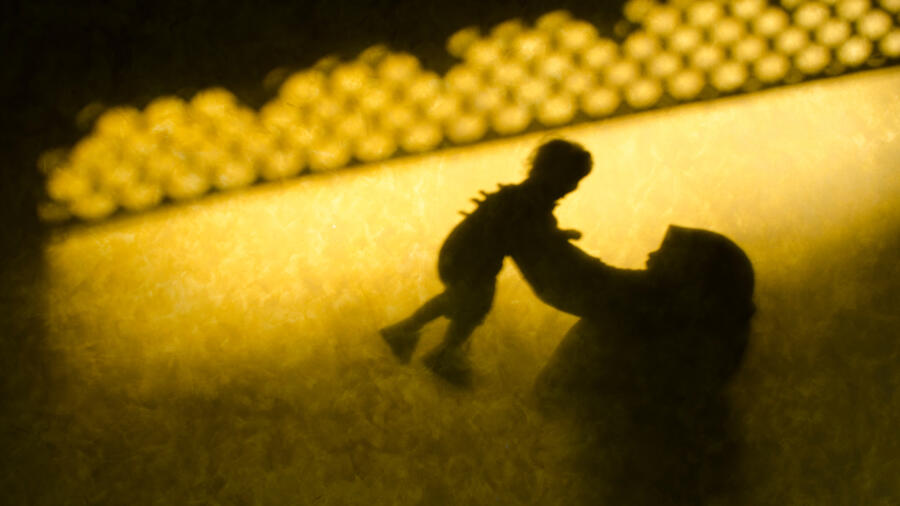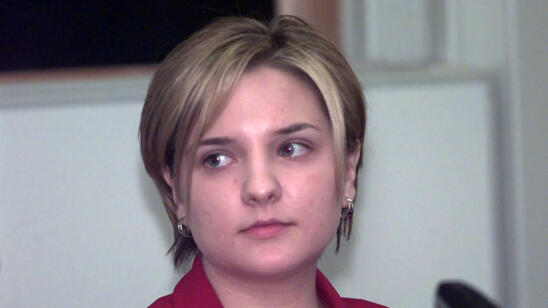The following content contains disturbing accounts of abuse. Discretion is advised.
“Munchausen syndrome” is a mental disorder in which a person fakes or induces medical problems in herself to receive attention and sympathy. But what has received far more media attention is “Munchausen syndrome by proxy” (or just “Munchausen by proxy”), a related mental disorder and form of abuse in which a person fakes or induces medical problems in another person, often a child in the abuser’s care.
The current Diagnostic and Statistical Manual of Mental Disorders (DSM–5) recognizes both of these mental conditions as “factitious disorder imposed on self” and “factitious disorder imposed on another” (factitious meaning “artificially created”), and there is no significant debate in the psychiatric community about their legitimacy. Even so, only one state—Arkansas—has a law codifying Munchausen by proxy as a form of illegal abuse.
Because of the lack of statutes acknowledging Munchausen by proxy—and the general confusion about what this abuse looks like—law enforcement and courts often struggle with how to prosecute this type of medical child abuse, say three experts from a task force within the American Professional Society on the Abuse of Children (APSAC) who spoke with A&E True Crime.
Understanding Munchausen by Proxy
Nearly all abusers in documented cases of Munchausen by proxy are women, according to a study in a 2017 issue of Child Abuse & Neglect. More than 95 percent of the time, they are the mother of the person they’re abusing. But what exactly does this abuse look like, and what motivates a person to do it?
[Stream The Prison Confessions of Gypsy Rose Blanchard in the Lifetime app.]
“When you’re talking about Munchausen by proxy, you’re talking about two different things at one time, which is why it’s a little confusing,” says Dr. Brenda Bursch, a clinical professor of pediatrics and psychiatry and biobehavioral sciences at UCLA’s medical school. She is a member of APSAC’s Committee on Munchausen by Proxy.
The first element in Munchausen by proxy is that the person who has the disorder is medically abusing a child, adult or pet. This abuse can take many forms, says Beatrice Yorker, a lawyer and registered nurse on APSAC’s task force who has also worked as an evaluator and consultant for Child Protective Services (CPA) in Atlanta.
In her work for CPA, Yorker participated in hospital surveillance programs that recorded a mother smothering her baby to stop the child’s breathing, a mother inducing herself to vomit and then pouring it on her baby so it looked like the child had vomited and a mother injecting her baby with its own fecal matter, resulting in an E. coli infection.
The second element in Munchausen by proxy is the abuser’s motive. “The most common one is for positive attention from other people, but there is variability,” Bursch says.
“Some people will say that they were maltreated in some way in their earlier life and this is a way to garner the sympathy,” she continues. “Other people will want to be seen as a good caregiver, kind of a martyr situation; that they’ve sacrificed so much to be this exemplary person.”
Often, people with Munchausen by proxy have a history of faking or inducing illnesses in themselves to receive positive attention and sympathy. “Munchausen syndrome is a risk factor for Munchausen by proxy or medical child abuse,” says Dr. Marc Feldman, a psychiatrist and author of Dying to be Ill: True Stories of Medical Deception who also serves on APSAC’s task force.
Munchausen syndrome may come up in court cases involving insurance fraud or medical malpractice. Because Munchausen syndrome is closely related to Munchausen by proxy, a medical expert may also bring up a person’s history of Munchausen syndrome in cases involving child custody or abuse.
Munchausen by Proxy in the Courts
The first criminal court case to consider Munchausen by proxy was the 1979 Priscilla Phillips trial, which came only two years after a British pediatrician coined the disorder’s name in medical journal The Lancet.
In 1975, Phillips and her husband adopted a baby girl from Korea to join them and their two biological sons in California. Over the next year and a half, Phillips visited the pediatrician as the child experienced a strange series of symptoms, including vomiting and fevers, for which doctors could not find a cause. In 1977, the child died.
After this, Phillips and her husband adopted another baby girl from Korea. In February 1979, Phillips brought the new baby to the pediatrician. Once again, the child was experiencing the same mysterious symptoms, leading doctors to suspect that Phillips had been poisoning both children. One of the doctors tested the formula Phillips was feeding the baby and found the sodium content was nearly 30 times the normal level. It turned out that Phillips had been mixing baking soda into it.
In 1979, a court convicted Phillips of murdering the first child and willfully endangering the life of the second. She lost an appeal and ended up serving four years in prison.
In cases of Munchausen by proxy where there is medical child abuse but no death, criminal prosecution can be more difficult because the law doesn’t always cover the abuse that is taking place. Often, the legal dispute in these cases is over whether the abusive parent will retain parental rights, rather than whether the parent will receive a criminal conviction.
During her time working for CPS, Yorker appeared as an expert witness for the agency in court cases involving Munchausen by proxy. In some cases, a mother was able to avoid a criminal trial and reunite with her family after a period of separation.
That’s what happened to the mother who poured vomit on her baby. Yorker says the mother had to spend a year apart from her family working and going to therapy. When she came back, the family agreed that the father would make all medical decisions, and that they’d work closely with a pediatrician who knew about the prior abuse. (Parents who medically abuse their children often see multiple doctors who are not aware of previous claims or incidents.)
“I call that a successful outcome because she had been caught early on,” Yorker says. “There had been a huge intervention, and her entire family and the pediatrician were all going to stop her if she even started down that road of exaggerating and fabricating.”
This was very different than what happened with the mother caught injecting feces into her baby. Yorker testified at the woman’s criminal trial and child custody trial, and the woman ended up serving two years in prison and losing custody of her children.
“I met with her on several occasions and she only admitted to what had been caught on the camera,” Yorker says. “She did not admit to any prior similar behavior, even though the child had an E. coli infection before the doctors put him in the video room… She had very little empathy.
“All she could focus on was how she was the victim.”
Related Features:
Where to Watch ‘The Prison Confessions of Gypsy Rose Blanchard’
The Turpin Family Abuse Case and Others: Why Do Some Parents Torture Their Children?


